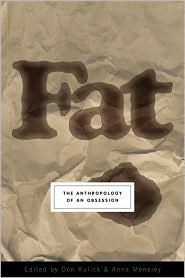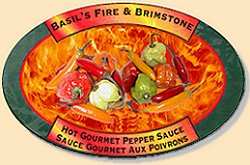Exhibit A: Sunrise Berry Farms Saskatoon Pie
Exhibit B: Farmer’s Market Blueberry Pie
Both of these products speak but in substantially different ways. The first one clearly has less information displayed than the second one does. The first one appears to be more silent than the second one. Exhibit B: Lists the flavour, the weight, the price, the fact that the berries used are wild, a notification of an ‘egg wash’ process, that the pie was baked in the store, that the pie is intended to emulate a ‘country-style’ aesthetic, – and it does so in both official languages. Exhibit A lists, the flavour, the business logo – and that’s it. Both pies do not tell you where the berries were picked. It does not tell you who made the pie (in fact exhibit A actually identifies the company while the apparent logo in the Exhibit B is actually a pseudo in house brand of the store which misdirects the consumer as to the identity of the producer).
The first pie as many of you know is one that I sell every weekend – its a small 4” Saskatoon Pie – perfect for coffee break. It is one of the most popular pies that we sell every week at the Lethbridge Farmers Market. The second pie is one that I saw while shopping at one of the local big grocery chains this afternoon. It is ironic that the second pie is called a Farmers Market Pie because it is clearly not sold either in the physical context of the Farmers Market or by a person who could legitimately qualify as a vendor at a Farmer’s Market (in fact it is not really sold by a person at all). The taste of either pie is sort of irrelevant yet I have a pretty good idea which one would win in a taste test (although I have not tasted Exhibit B:)
In the last few classes of our course part of what our discussions have led to is questions like: how do we determine what is authentic? and how does the constant onslaught of new consumer goods cause a type of cultural amnesia? All these questions have led me to another question which is closely tied to the first two: in what ways do the politics of our economic system silence certain voices while privileging others?
It has always seemed strange to me that older ladies will come to buy our pies at the market. These are women who likely have acquired the skill of making pie/pastry as a part of a fairly patriarchal social framework. These ‘grandmas’ know how to make pie. So what are they doing when they come to the market to buy our pie? One of the things they are doing is giving up the ability to claim the pie as their own product (this must be a fairly calculated move reasons their own energy level and their desire to produce something that their children/friends enjoy.) They are still retaining the ability to govern the discursive field of what type of pie is seen as worthy of eating. This is the pie that Grandma serves and as a result it must be good because she serves it. Grandma and the production of pie are synonymous with quality. Would Grandma ever bring an Exhibit B: pie home – not likely? The connection to Grandma and pie is deeper than that. Grandma after all is the repository for the idea of ‘homemade’. Homemade isn’t just about where the product is made it is about how the product is made. What is the recipe? This means that a pie can hold some very strong sentiments about what things are supposed to be like. They might also be a repository for how things used to be…
When pies get made in batches instead of 1, 2, or 3 at a time something important happens. They stop being ‘homemade’. As soon as you sell more than 1, 2, or 3 pies at a time (let’s say at a bake sale) the authenticity of the recipe can be called into question. There is a uniqueness to a homemade pie – its a one-off – like a Picasso or Monet. No two pies of grandmas will taste exactly the same. Yet when we talk about something being homemade we don’t connote the idea of variability but rather of a consistently similar product that is reproduced in the same way every time – just like Grandma used to make it. But what the artisan pie baker can do is capitalize on this idea by producing a product that is consistent every time (or at least very close to the same product). A strict adherence to recipe and method produces the same product. What is interesting is what I have come to notice at the market over the years and was said numerous times to me today as costumers scrambled to pick up their products at the last market of the Fall. - “This pie tastes just like homemade.” or its corollary “This pie tastes like nothing like those cardboardy grocery store pies – this is the real thing!” Of course that gives a guy like me the fuzzies but what is going there. Me, the pie seller is commodifying an idea which becomes the product that I can sell effectively in this context. I am selling the real thing. But in reality I am selling a product that is as un-unique as a lithograph of the Mona Lisa in your favourite poster shop.
From that perspective the pie that I sell is not that different than the one I found on the shelf of the big grocery story. That company is engaging in reproduction of something more authentic. Yet clearly their pie is not held in as high esteem as the one I get to deal. But that is not for a lack of trying. Look again at the way the packaging begs to be identified as authentic. This authenticity is not however back to the idea of homemade or to grandma but to the place that has come to take grandmas place in the social consciousness. Their pie may in fact be just as tasty as our pie is but it clearly cannot produce the same aesthetic representation in the minds of its consumers. So the grocery store pie blares out its message that it is authentic and holds all the qualities a consumer might look for in a pie. My pie just sits there and waits to be picked up.
But here is the advantage that my pie has over the one on the shelf of the food pimping giant. My pie can answer your questions. Well not directly – but through me. I have been asked all manner of questions about pies and I have at times invented things to navigate an easier sale. But that has only been because the questions have just been completely bizarre and outlandish. Did you bake this pie? When was it baked? Do you add a softening agent to make the skins of the berries softer? Is it alright if I buy this pie and say that I made it myself? (to which I answered - - yes) Why does the sugar make polka dots on the crust? Will you sell this pie for less money? Do I get a deal? Could you make a raspberry pie? The fact is that if the customer has any question at all about the product they can and often will ask me. And I will to the best of my ability deliver an accurate answer. YOU JUST CAN’T ASK THE GROCERY STORE PIE A DARN THING! You have to depend on what the box tells you.
But you can depend on one other thing as well. You can depend on the political position of the monstrous sustenance peddler. You see the giant super store has positioned itself well. It is the fount of variety, the guardian of safety in food storage, the regulator against prohibitive food pricing. As such it has come to represent reliability in a significant way. Reliability – when is the last time you went to the grocery store and found that they did not have milk? So from that position the store can make a pie and wrap it in a box that is screaming its identity like so many of the bothersome toddlers that get dragged up and down the aisle in those stores. And the consumer will pick up that pie – i tell you – the consumer will pick up that pie because it is even more reliable than the farmers market pie. The farmers market pie after all could be contaminated by the farm. If the farmers wife is doing this in her kitchen (which by the way would never pass the food inspection standards that each vendor must meet) are we going to get the farmers greasy fingers mixing the dough? This is all desperately ironic since after all we know that grandma’s pie often had mistakes built right into it. Pies were made right after slaughtering chickens and sometime grandpa got his fingers in the pie filling before it was baked. Other times grandma would run out of a certain ingredient and then you’d get a surprise chokecherry or two in your Saskatoon pie. But we sure loved grandma’s pie – and still do. But now we can dismiss all the inconsistency that made her pie awesome and we can buy the cardboard pie because it is reliable.
The consumer gives up the right to ask the pie questions and must depend on the box to do the talking. So now the pie that says the least actually holds the strongest voice. The pie that can answer any question you ask of it (through me) has a much weaker voice. And grandma still isn’t making her own pies anymore.

But the greater silence is that in the consumer mentality that is common to our social fabric we have traded the beauty of inconsistency for the reliability of consistent and convenient. As Paul Connerton suggests, “A handmade world, in which all things were made one by one was a slow world.” Mechanical reproduction transforms society into one that is in constant progress toward the new latest product and into a perpetual forgetting. This forgetting is not as straight-forward as I have just described but it is an important place for us investigate the influences on our consumption of food.
Jason Laurendeau wrote an article with Carly Adams on the topic of Women’s Ski Jumping in the Olympics. The authors address these silences ( or we might even be able to say at this point – the memory losses). Certain voices get to speak louder than others and as a result certain aspects of the topic get privileged and others get forgotten, “…a given discourse appears with regularity across a range of texts (broadly defined) and practices to regulate what may be said ‘within the true’ about a given subject in a particular socio-historical moment. Not only, then, does a discourse constrain what can meaningfully be said about a particular topic at a particular time, but it also works to authorize particular voices and silence others.” p. 433
From this vantage point we see our willingness to disengage with the messiness of the authentic in order to gratify and satisfy other political voices that perhaps keep us from engaging social reality that is more connected to each other. When you buy an Exhibit B: pie you don’t have to hear about the relative that passed away suddenly. You don’t have to engage with people. Perhaps food after all is the one place where we might be able to restore ourselves to each other……………
…from there let the pie speak!


 “(This)
“(This)  is about how fat in any society is never just about weight or health or looks. Instead, fat is a symbol, a mirror we can gaze into to glimpse the things society tells us are the fairest of them all-and the things society tells us are the grossest, least fair of them all. Looking closely at how people think about fat tells us a lot about how they think about the world in which they live.” – Don Kulick and Thais Machado-Borges in Leaky in Fat: the Anthropology of an Obsession
is about how fat in any society is never just about weight or health or looks. Instead, fat is a symbol, a mirror we can gaze into to glimpse the things society tells us are the fairest of them all-and the things society tells us are the grossest, least fair of them all. Looking closely at how people think about fat tells us a lot about how they think about the world in which they live.” – Don Kulick and Thais Machado-Borges in Leaky in Fat: the Anthropology of an Obsession 

 Mennonite Central Committee
Mennonite Central Committee To that end La Via Campesina has come out with a statement about how food sovereignty is connected to ending all forms of injustice against women.
To that end La Via Campesina has come out with a statement about how food sovereignty is connected to ending all forms of injustice against women. Raj Patel expands on this in his book The Value of Nothing
Raj Patel expands on this in his book The Value of Nothing So then I suspect that the work that MCC is doing will actually be framed with a good deal of what might legitimately be called violence as it works proactively to address the
So then I suspect that the work that MCC is doing will actually be framed with a good deal of what might legitimately be called violence as it works proactively to address the  At its height, the
At its height, the 
 Weight Log: 223 lbs
Weight Log: 223 lbs influenced so strongly by the opinions of others. Whether one food item is actually healthy is not as important as whether our social networks are excited about that food product. They may indeed be excited about it because of the perception that it is healthy but it needn’t be healthy at all. Pick any one of the recently marked super foods as a prime example.
influenced so strongly by the opinions of others. Whether one food item is actually healthy is not as important as whether our social networks are excited about that food product. They may indeed be excited about it because of the perception that it is healthy but it needn’t be healthy at all. Pick any one of the recently marked super foods as a prime example. 



 I got this wicked Eggplant Curry recipe from a Guyanese Canadian vendor who operates a world renowned hot sauce company producing one of my favourite condiments
I got this wicked Eggplant Curry recipe from a Guyanese Canadian vendor who operates a world renowned hot sauce company producing one of my favourite condiments 

 That brings me back to last night’s class.
That brings me back to last night’s class.  stand drinking Folgers coffee!” Is that because it tastes bad or because I am trying to make a statement about who I am in comparison to all those other hopeless addicts. Am I actually exercising what Pierre Bourdieu would call
stand drinking Folgers coffee!” Is that because it tastes bad or because I am trying to make a statement about who I am in comparison to all those other hopeless addicts. Am I actually exercising what Pierre Bourdieu would call 







